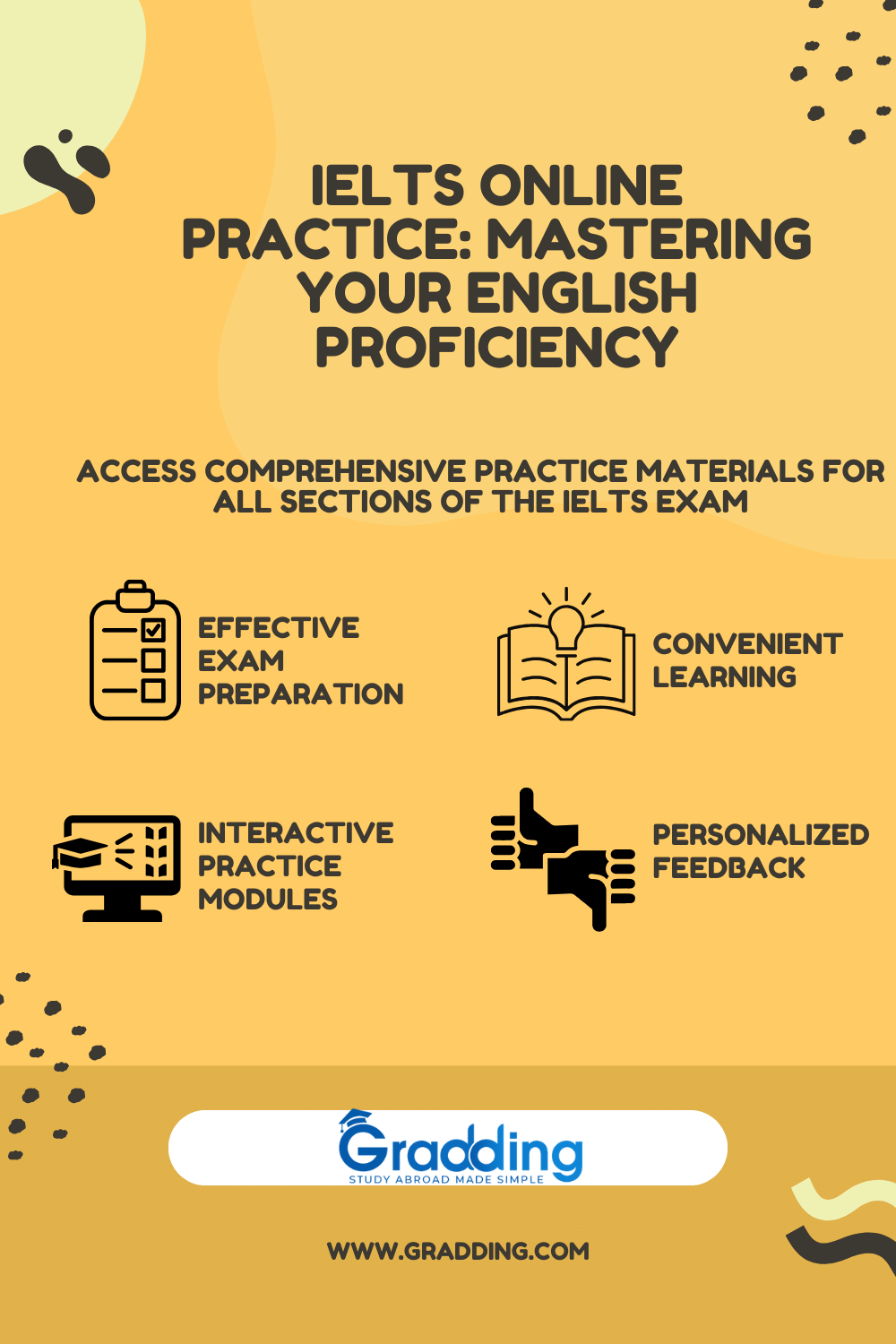Breaking Down the Four Sections of IELTS: A Complete Guide

Strong 8k brings an ultra-HD IPTV experience to your living room and your pocket.
You need to qualify for a worldwide accepted exam called IELTS if you want to study abroad in an English-speaking nation. Without a clear knowledge of the syllabus, exam pattern, and sections of IELTS, preparing for this exam can be stressful. In this article, to simplify your work, everything about the 4 sections is covered in detail
Knowing the exam basics before taking online IELTS classes can help you prepare with proper planning and strategies. You will know what to focus on and what not. Now, let's learn about each section in detail.
Knowing the Sections:
Firstly, the full form of IELTS is the International English Language Testing System. It has 4 sections. Each section has a purpose. So, before anything else, it is wise to know the various sections of IELTS. This will improve your overall preparation which leads to better results. Let’s dive in!
Listening Section:
The first section is the listening section. In this, your ability to grasp spoken English in various contexts is tested. It consists of 4 recordings. You need to answer 40 questions. The recordings have both monologues and conversations.
There may be a wide range of topics starting from everyday conversations to academic topics. As you continue listening, you will come across various dialects, accents, speech and tones. So, to qualify for this section, you need to have active listening skills.
Reading Section:
This is the important one among all the sections of IELTS. In this, your ability to read and interpret written English is tested. Here, you will have to read various articles. These include articles from newspapers, magazines etc. You need to skim the main idea along with grasping the depths of the writing. This needs a lot of practice and strategic reading.
Just like the listening section, you need to answer 40 questions. So, to qualify for this section, you need to have strong and speedy reading skills, as well as inference making and critical analysis.
Writing Section:
The next important section among the 4 sections of IELTS is the writing section. It consists of two tasks. The main point of this assignment is to see how well you can write about anything. In the first task, you need to read and write down the information from graphs, charts, and other visual data. Second, task 2 asks you to write an essay on a subject you are given. Most of the students haven't had enough play time. Therefore, they struggle in this section.
So, to make things easy, you need to give special focus to this section during your online IELTS classes. In this way, you can improve your chances of success in the main exam.
Speaking Section:
The last section is the speaking section. It tests your speaking and communication skills. All the above three sections are conducted at a stretch. The speaking section happens either on the same day or any other day depending upon the availability of the examiner. This is a face-to-face interview.
There are three parts to this section. In the first part, you'll talk about your hobbies, family, and personality in a casual way. Second, you have to give a monologue on a certain topic in part 2. Third, part 3 will talk more about the subject that was talked about in part 2. The best way to do well in this part of the IELTS is to do mock interviews while you are taking your online IELTS classes.
This is all about the 4 sections, you need to know. Now that you are here, you should have a basic knowledge of the exam. So now, let’s go a step deeper to know about the test format and timings.
Test Format and Timing:
Knowing the test format and timings is vital for the preparation. It will help you to prepare and plan strategies. The first test format is academic, and the second one is general training. However, each section has a different purpose. The entire format and timings for both sections remain the same. However, there is a slight change in the reading and writing sections. Also, the syllabus of IELTS for both formats varies. Firstly, the listening section lasts for 30 minutes. Secondly, the reading and writing section lasts for 1 hour each. Lastly, the speaking section lasts for less than 15 minutes.
Scoring and Results:
Scoring in the IELTS is based on a band scale of 9. Each section of the IELTS has a different score. The overall band score is calculated on the average of the 4 sections’ band scores. The scoring is based on many factors. Grammar, pronunciation, fluency and coherence are mainly focused while awarding you with the scores. You need to achieve a specific band score to qualify for the exam. However, this score is different for different purposes. The purposes might be academic admission, professional certification or immigration.
Conclusion:
To sum up, knowing all 4 sections will help you to have a clear understanding of the IELTS exam. You need to focus on the test format, patterns, and syllabus for the IELTS. Taking time to learn each section in the initial days of your preparation will help you face the challenges by developing good strategies.
Achieving a good band score is important as it will give you a chance to pursue your dream of studying abroad. Certainly, with proper coaching, effort, and strategies, you can clear the exam with ease. Therefore, you can start your journey towards pursuing your academic and professional goals.
Note: IndiBlogHub features both user-submitted and editorial content. We do not verify third-party contributions. Read our Disclaimer and Privacy Policyfor details.




